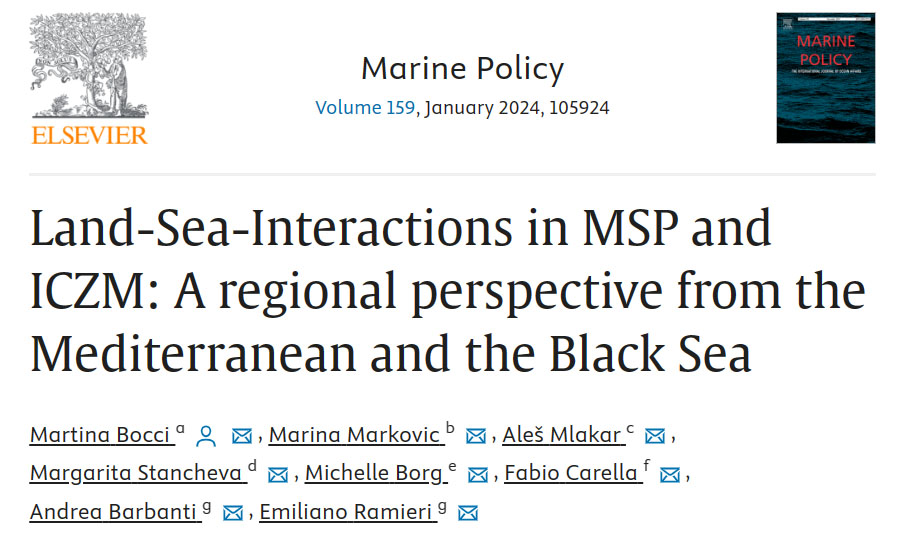
We are happy to promote our newly published joint research paper in Marine Policy Journal (Elsevier): Land-Sea-Interactions in MSP and ICZM: A regional perspective from the Mediterranean and the Black Sea, a collaboration of:
• t-ELIKA, Venice, Italy
• Priority Actions Programme/Regional Activity Centre (PAP/RAC), Split, Croatia
• Prostorsko načrtovanje, Ljubljana, Slovenia
• Center for Coastal and Marine Study (CCMS), Varna, Bulgaria
• Planning Authority, Malta
• IUAV University of Venice, Department of Architecture and Arts, Planning and Climate Change Lab, Venice, Italy
• Institute of Marine Science (ISMAR), National Research Council (CNR), Venice, Italy
Land-sea interactions are relevant for marine spatial planning. Natural processes at the land-sea interface shape the terrestrial and the marine environment, influencing coastal and maritime activities in the area. Coastal and sea uses also hold numerous land-sea interactions, calling for infrastructures and services both on the land and the sea side.
In this paper the Guidelines for LSI in MSP proposed by UNEP/MAP PAP/RAC to provide practical support to land-sea interaction analysis within MSP are applied in four case studies: Bulgaria, Italy, Malta and Montenegro, within formal and informal marine spatial planning processes. The Guidelines have proved to be flexible, scalable and suitable to tiered approaches. They were adapted to the specificities of different planning, geographic, governance contexts, responding to the state and the needs of MSP development in the different countries, including non-EU ones.
The Black Sea (Bulgaria) research was carried out as part of the project “Cross-border Maritime Spatial Planning for Black Sea – Bulgaria and Romania (MARSPLAN-BS II)”, funded by the European Maritime and Fisheries Fund of the European Union through the Agreement: EASME/EMFF/2018/1.2.1.5/01/SI2.806725 - MARSPLAN-BS II.
We are happy to promote our newly-published MSP-LSI article through the Elsevier Share Link: URL (https://authors.elsevier.com/c/1i8V2,714MqzgY ), providing 50 days' free access to the article. Anyone clicking on this link before January 12, 2024 will be taken directly to the final version of our article on ScienceDirect, which they are welcome to read or download. No sign up, registration or fees are required.
